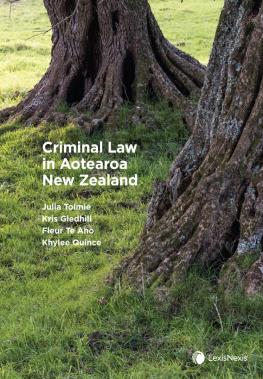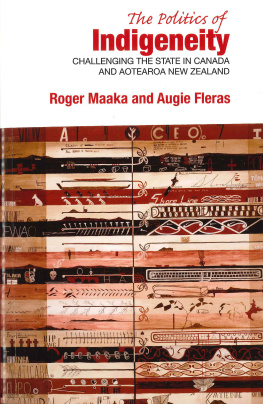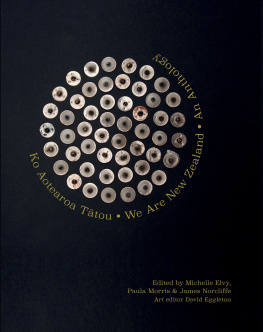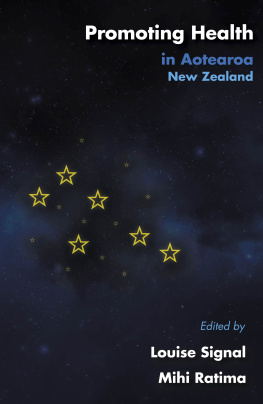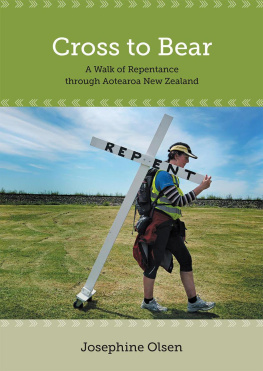Michael Dale - Social Work in Aotearoa New Zealand
Here you can read online Michael Dale - Social Work in Aotearoa New Zealand full text of the book (entire story) in english for free. Download pdf and epub, get meaning, cover and reviews about this ebook. year: 2016, publisher: Massey University Press, genre: Politics. Description of the work, (preface) as well as reviews are available. Best literature library LitArk.com created for fans of good reading and offers a wide selection of genres:
Romance novel
Science fiction
Adventure
Detective
Science
History
Home and family
Prose
Art
Politics
Computer
Non-fiction
Religion
Business
Children
Humor
Choose a favorite category and find really read worthwhile books. Enjoy immersion in the world of imagination, feel the emotions of the characters or learn something new for yourself, make an fascinating discovery.
- Book:Social Work in Aotearoa New Zealand
- Author:
- Publisher:Massey University Press
- Genre:
- Year:2016
- Rating:4 / 5
- Favourites:Add to favourites
- Your mark:
- 80
- 1
- 2
- 3
- 4
- 5
Social Work in Aotearoa New Zealand: summary, description and annotation
We offer to read an annotation, description, summary or preface (depends on what the author of the book "Social Work in Aotearoa New Zealand" wrote himself). If you haven't found the necessary information about the book — write in the comments, we will try to find it.
Social Work in Aotearoa New Zealand — read online for free the complete book (whole text) full work
Below is the text of the book, divided by pages. System saving the place of the last page read, allows you to conveniently read the book "Social Work in Aotearoa New Zealand" online for free, without having to search again every time where you left off. Put a bookmark, and you can go to the page where you finished reading at any time.
Font size:
Interval:
Bookmark:



The authors dedicate this book to
their loving and supportive families.
MASSEY TEXTS
An imprint of Massey University Press
First published in 2016 by Massey University Press
Private Bag 102904, North Shore Mail Centre,
Auckland 0745, New Zealand
www.masseypress.ac.nz
Text copyright Kathryn Hay, Michael Dale and Lareen Cooper, 2016
Images copyright Dion OConnor, 2016
Design by Kate Barraclough. Diagrams redrawn by Janet Hunt.
Cover photograph by Dion OConnor: imagery.queensberryworkspace.com
The moral right of the authors and photographer has been asserted.
All rights reserved. Except as provided by the Copyright Act 1994, no part of this book may be reproduced, stored in or introduced into a retrieval system or transmitted in any form or by any means (electronic, mechanical, photocopying, recording or otherwise) without the prior written permission of both the copyright owner(s) and the publisher.
A catalogue record for this book is available from the National Library of New Zealand.
Ebook conversion 2021 by meBooks
ISBN: 9780994130082 (print)
ISBN: 978-0-9951465-5-6 (eBook)
Introduction
Youth Social Work
Youth Justice Residential Social Work
Community Faith-based Social Work
Mental Health Social Work
Womens Health Social Work
Final Reflections

Youth social worker Sarah Vaelua.
This book has been written in response to the requests of Bachelor of Social Work students wishing to be introduced to the various social and community work fields of practice earlier in their degree. It is primarily aimed at social work students, but may also be helpful for social workers returning to practice or for social workers from other countries seeking to understand the Aotearoa New Zealand context.
This text presents five fields of practice in Aotearoa New Zealand, through the lens of five social workers. The social workers each present their understanding of their field through describing:
their organisation
their field of practice
the theories and models utilised
the key issues and challenges
bicultural considerations, and
the reasons for working in their organisation.
Each field of practice is supported by a narrative linking the social workers perspectives with relevant literature.
The five fields of practice are:
youth social work
youth justice residential social work
community faith-based social work
adult mental health social work, and
womens health social work.
Exploring fields of practice
This section introduces: (1) an analytic framework for examining the different fields of social work practice; (2) ways of understanding the interplay between theory and practice; and (3) how bicultural social work practice can be considered within a field of practice. These three perspectives, in combination, offer a way to interrogate a particular field of practice.
Framework for examining a field of practice
When considering a field of practice, particular emphasis should be placed (1) on the utilisation of the available frameworks of analysis, and (2) on the knowledge base relevant to each field. Relevant knowledge bases include theoretical explanations and research, practice principles, models of assessment and intervention, and current issues.
Kamerman (2002) suggests that fields of practice refers to: the settings in which social workers practise; the social problems in which social workers intervene; and the client population whom social workers help. Additionally, Nash, Munford and Hay (2001) and Alston and McKinnon (2005) argue that a field of practice may be defined and described by: the nature of the problems involved; the client group; the service providers; specialist knowledge; historical antecedents; and current issues.
Fields of practice are fluid they emerge, disappear and combine in response to new social problems, changing values and new legislation (Kamerman, 2002). Dulmus and Sowers (2012) point to the influence of changing demographics and socioeconomic patterns. For example, in Aotearoa New Zealand, work with migrants and refugees is an emergent field. Also, following the Christchurch earthquakes, work with victims of trauma has received increased attention (see van Heugten, 2014).
The following are examples of fields of practice: addictions; care and protection; family violence; youth and youth justice; iwi-based social work; Pasifika social work; social workers in schools; probation; health; mental health; working with the elderly; refugees and migrants; spirituality and faith-based social work.
Assessing a field of practice
The following questions form the basis for assessing a field of practice:
What is the focus?
Who are the clients?
What is the experience of the clients?
Who are the key service providers?
How did this field of practice develop historically (both internationally and in Aotearoa New Zealand)?
What specialist knowledge and skills are related to this field of practice?
What theories and models inform practice in a particular field?
What are the assessment, planning and intervention processes that are used within this field of practice?
What are the current issues for the field of practice in Aotearoa New Zealand and internationally?
SOME USEFUL RESOURCES
Alston, M., & McKinnon, J. (Eds.). (2005). Social work: Fields of practice (2nd ed.). Melbourne: Oxford University Press.
This is an Australian text divided into the following sections: working with particular groups and communities of interest; social work practice settings; and emerging trends and issues in social work. It is worth checking out when you are searching for information regarding a particular field.
Connolly, M., & Harms, L. (Eds.). (2013). Social work: Contexts and practice (3rd ed.). Melbourne: Oxford University Press.
This text is divided into three parts: social work and contemporary issues; fields of practice; and professional issues in social work. In particular, there are chapters directly relevant to fields of practice in Aotearoa New Zealand.
Dulmus, C., & Sowers, K. (Eds.). (2012). Social work fields of practice. Hoboken, NJ: John Wiley & Sons.
A text drawing on the US context that traverses the following fields: child welfare; family-centred practice; school social work; substance abuse; mental health; disability practice; geriatric social work; veterinary social work; social work with the military; international social work; immigrant and indigenous populations; and diversity.
Nash, M., Munford, R., & Hay, K. (2001). Social work in context: Fields of practice in Aotearoa New Zealand. Palmerston North: School of Sociology, Social Policy and Social Work, Massey University.
Despite being an older publication, this text provides very good analysis of various practice contexts in Aotearoa New Zealand.
Linking theory and practice
When exploring a field of practice it is important to consider how social work theory informs the practice that occurs. As you read about different fields of practice and listen to the views of various practitioners, it is important to explore and reflect on what is being said.
Next pageFont size:
Interval:
Bookmark:
Similar books «Social Work in Aotearoa New Zealand»
Look at similar books to Social Work in Aotearoa New Zealand. We have selected literature similar in name and meaning in the hope of providing readers with more options to find new, interesting, not yet read works.
Discussion, reviews of the book Social Work in Aotearoa New Zealand and just readers' own opinions. Leave your comments, write what you think about the work, its meaning or the main characters. Specify what exactly you liked and what you didn't like, and why you think so.



